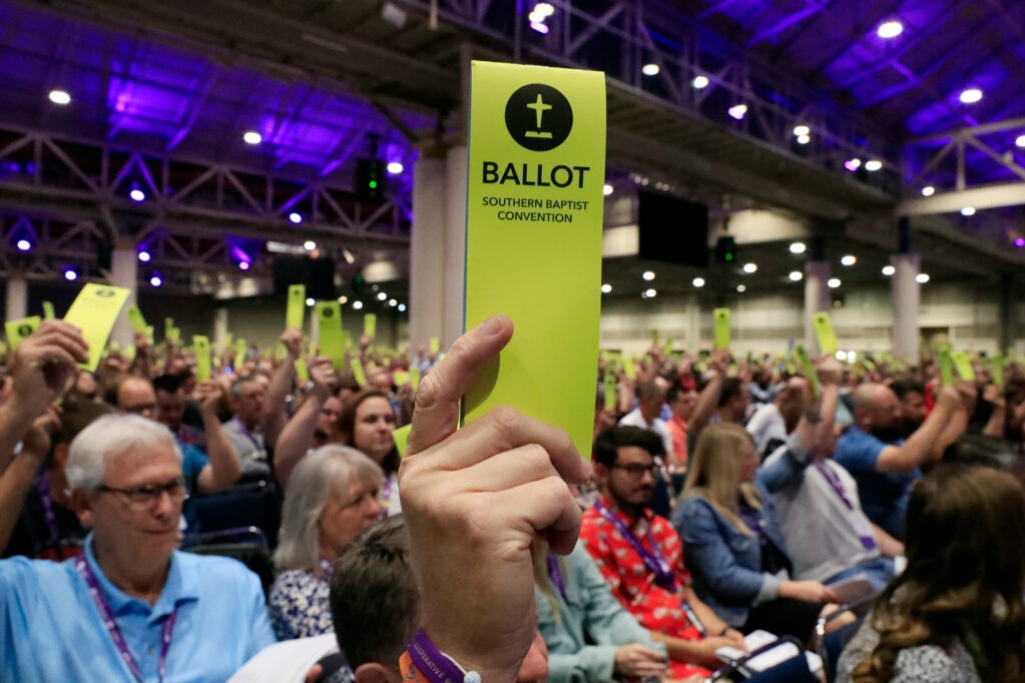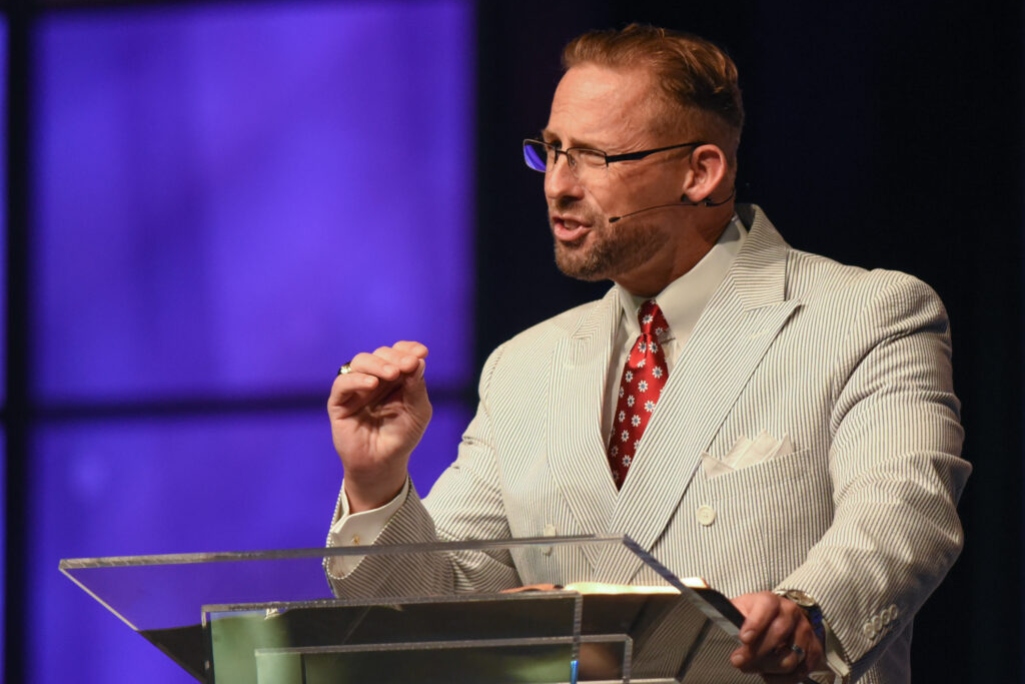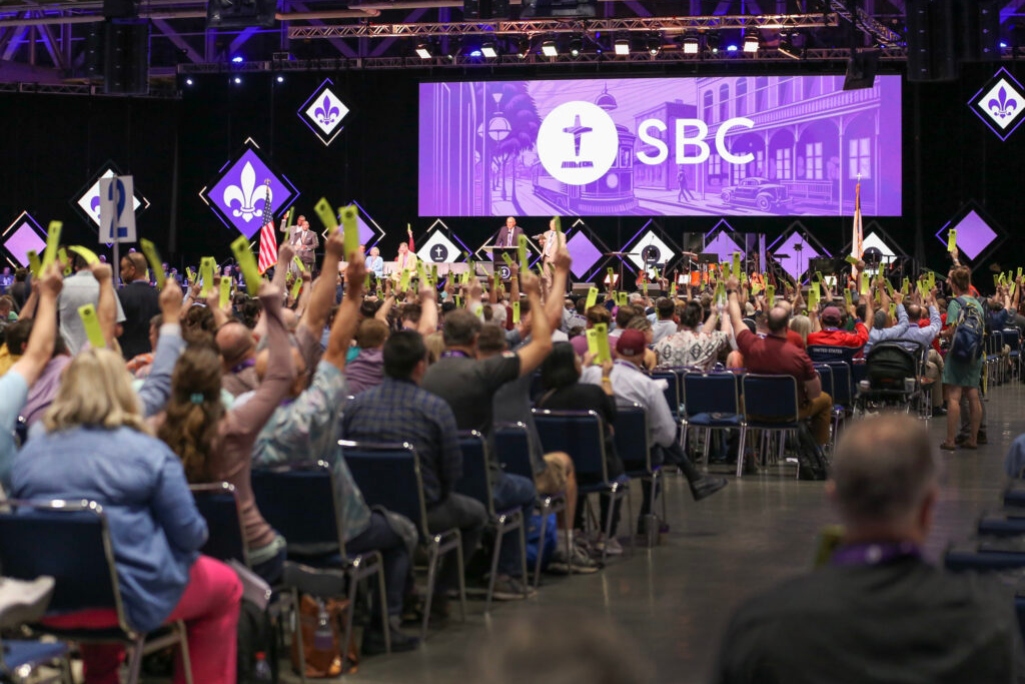
It’s my privilege to serve as the recording secretary of the Southern Baptist Convention (SBC). The recording secretary is elected each summer by messengers to the SBC annual meeting. Along with the registration secretary, a position currently held by my beloved colleague Don Currence, the recording secretary position is not term limited. Whoever serves in these roles is eligible for reelection annually. I’m beginning my third term as recording secretary, having been first elected in Anaheim in 2022. My widely respected predecessor, John Yeats, served as recording secretary for a quarter century.
The recording secretary has four main responsibilities. He oversees publication of the Book of Reports each spring. During the annual meeting, he records the proceedings and works with the Executive Committee communications staff to produce the Daily Bulletin. During the summer, he edits the SBC Annual, which combines information from the Book of Reports with the convention’s governing documents and the official version of the proceedings from the annual meeting. Finally, the recording secretary serves as an ex officio member of the Executive Committee, representing Southern Baptists in general rather than a particular state.
Like so much in Southern Baptist life, the SBC Annual is a collaborative project. The recording secretary contributes the proceedings from the annual meeting. The convention’s entities, boards, commissions and auxiliaries contribute the information related to their work. When applicable, task forces and ad hoc committees contribute material. The president and the preacher chosen to deliver the convention sermon contribute the manuscripts of their respective messages from the annual meeting. The Executive Committee staff contributes the governing documents and pulls the entire SBC Annual together. The recording secretary gives final editorial approval.
The 2024 SBC Annual has now been published. From my seat as recording secretary, I want to offer a few observations on what this year’s Annual tells us about the Southern Baptist Convention.
The final messenger count for Indianapolis was 10,946. The number compares to 12,737 messengers in New Orleans in 2023, 8,133 messengers in Anaheim in 2022, and 15,726 messengers in Nashville in 2021. Just over 25% of messengers said this was their first SBC annual meeting. Almost 65% of messengers have attended five or fewer annual meetings. About 44% of messengers were under age 50 and 56% were over age 50. Approximately 38% of messengers were in their 30s and 40s.
Out of almost 47,000 churches that cooperate with the SBC, only 3,988 sent messengers. Well under 10% of our churches send messengers to the SBC annual meeting. I suspect this is one reason why there were multiple motions this year from messengers related to potential online participation in the future.
Every year, a majority of messengers are church staff. This year, the percentage was 53.6%. Of that number, 60% were senior pastors. This means approximately 1/3 of all messengers were senior pastors. This percentage doesn’t include other pastors, whether paid staff or unpaid elders. We are a convention led by pastors — especially senior pastors.
This year, 4.4% of the messengers work for state conventions while another 4.8% serve as associational mission strategists (AMS). These numbers likely overlap to some degree because an AMS can also be a pastor or other staff member. In some cases, an AMS might also work for a state convention.
In recent years, some observers have voiced concerns that entity employees comprise a disproportionate number of messengers. This year, 2.7% of the messengers (283 individuals) work for a national entity. Of course, many more entity employees who aren’t messengers are in attendance because they are working. However, since only messengers can vote, many entity employees who are at the annual meeting are only participating as observers.
At the SBC annual meeting, decisions are always made by who is in the room. The four votes this year with the highest percentage of messenger involvement were the first presidential election (82%), the second presidential ballot (78%), the Law Amendment vote (76%) and the final presidential ballot (69%).
I want to help put these numbers in perspective. Clint Pressley won the presidency with 56% of the votes cast on the final ballot, but that represented only 39% of all messengers present. The Law Amendment fell short with a 61.45% affirmative vote, but that represented only 47% of all messengers present. Would more messengers voting have changed the outcome of the presidential election or the Law Amendment? We have no way of knowing. But that is my point: thousands of messengers did not cast their ballots at the appropriate time.
I offer these reflections simply as food for thought. I want to encourage you to read the SBC Annual when it becomes available. More importantly, I want to encourage every cooperating church to send as many messengers as they are allotted. And I want to encourage messengers to be present, be engaged, vote your conscience and give God the glory for the work He does in and through the people called Southern Baptists.
(EDITOR’S NOTE — Nathan A. Finn is professor of faith and culture and executive director of the Institute for Transformational Leadership at North Greenville University. He is also the Recording Secretary of the Southern Baptist Convention.)


